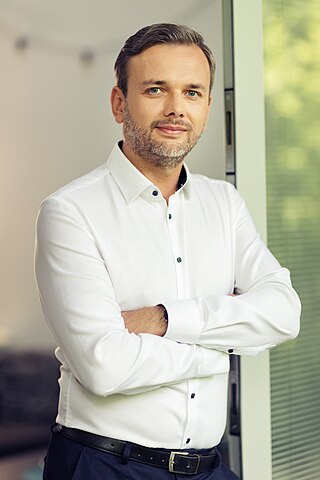Related Research Articles

A business school is a higher education institution or professional school that teaches courses leading to degrees in business administration or management. A business school may also be referred to as school of management, management school, school of business administration, college of business, or colloquially b-school or biz school. A business school offers comprehensive education in various disciplines related to the world of business.
A Master of Business Administration is a postgraduate degree focused on business administration. The core courses in an MBA program cover various areas of business administration such as accounting, applied statistics, human resources, business communication, business ethics, business law, strategic management, business strategy, finance, managerial economics, management, entrepreneurship, marketing, supply-chain management, and operations management in a manner most relevant to management analysis and strategy. It originated in the United States in the early 20th century when the country industrialized and companies sought scientific management.
Business administration, is the administration of a commercial enterprise. It includes all aspects of overseeing and supervising the business operations of an organization.
The Association of MBAs (AMBA) is a global organisation founded in 1967 which focuses primarily on international business school accreditation and membership.
The Wharton School of the University of Pennsylvania is the business school of the University of Pennsylvania, a private Ivy League research university in Philadelphia. It is the world's oldest collegiate business school, established in 1881 through a donation from Joseph Wharton.

Ca' Foscari University of Venice, or simply Ca' Foscari, is a public research university in Venice, Italy. Since its foundation in 1868, it has been housed in the Venetian Gothic palace of Ca' Foscari, from which it takes its name. The palace stands on the Grand Canal, between the Rialto and San Marco, in the sestiere of Dorsoduro, while the rest of the University is scattered around the historical centre.

ESCP Business School is a French business school and grande école founded in Paris and based across Europe with campuses in Paris, Berlin, London, Madrid, Turin, and Warsaw. It is known as one of the trois Parisiennes, together with HEC Paris and ESSEC. Established in 1819, it is considered the world's oldest business school. ESCP Business School runs BSc, MBA, Executive MBA, master's degree programs in finance and management, executive education programs, and PhD programs.
The Master of Management is a master's degree comprising one or two years graduate level coursework in business management.

The EFMD Quality Improvement System (EQUIS) is an international school accreditation system. It specializes in higher education institutions of management and business administration, run by the European Foundation for Management Development (EFMD).
HHL Leipzig Graduate School of Management, formerly known as Handelshochschule Leipzig, is a private business school based in Saxony, Germany. Established in 1898, it is one of the world's oldest business schools. The school is accredited internationally by AACSB and locally by ACQUIN. HHL Leipzig graduate school of management is authorized to award doctoral and postdoctoral degrees.

WHU – Otto Beisheim School of Management is a German business school with campuses in Vallendar and Düsseldorf, Germany. WHU was founded in 1984 by the Koblenz Chamber of Commerce as the Wissenschaftliche Hochschule für Unternehmensführung; the name was modified in 1993 to honour WHU's benefactor, the businessman Otto Beisheim. As of September 2023, there are 1,989 students at WHU, about 248 employees and 59 professors.
Societal responsibility of marketing is a marketing concept that holds that a company should make marketing decisions not only by considering consumers' wants, the company's requirements, but also society's long-term interests.
Master of Science in Management, abbreviated MSc, MScM, MiM or MSM, is a postgraduate degree with a focus on business management.

Sorbonne Business School is a public business school, part of University of Paris 1 Pantheon-Sorbonne in Paris, France. It is part of the IAE network.

Soumodip Sarkar is an economist and management scholar.
Vital Roux (1766–1846) was a French businessman. He notably is co-founder of ESCP business school.

Andreas Marcus Kaplan is president of Kühne Logistics University. He is specialized in the areas of social media, viral marketing, and the digital world in general.
Hein Schreuder was a Dutch economist and business executive, executive vice-president corporate strategy & acquisitions at DSM and professor at the University of Maastricht, especially known for his work on "Economic approaches to organizations" with Sytse Douma and for his role in the (second) transformation of DSM.
The European environmental research and innovation policy is a set of strategies, actions and programmes to promote more and better research and innovation for building a resource-efficient and climate resilient society and economy in sync with the natural environment. It is based on the Europe 2020 strategy for a smart, sustainable and inclusive economy and it realises the European Research Area (ERA) and Innovation Union in the field of environment. The aim of the European environmental research and innovation policy is to contribute to a transformative agenda for Europe in the coming years, where the quality of life of the citizens and the environment are steadily improved, in sync with the competitiveness of businesses, the societal inclusion and the management of resources.

Grzegorz Mazurek is a Polish researcher in the Department of Marketing at Kozminski University. He is a rector of Kozminski University for the period of 2020–2024., a theoretician and practitioner of management and marketing, a professor of social sciences, and the director of the Research Center for Digital Transformation of Economy and Society - CYBERMAN. In his research, teaching, and consulting work, he specializes in the digital transformation, digital marketing, e-business and e-education. He is a member of EQUIS Accreditation Board.
References
- ↑ Kaplan, Andreas (2014). "European management and European business schools: Insights from the history of business schools". European Management Journal. 32 (4): 529–534. doi:10.1016/j.emj.2014.03.006.
- ↑ Kaplan, Andreas (2014). "European management and European business schools: Insights from the history of business schools". European Management Journal. 32 (4): 529–534. doi:10.1016/j.emj.2014.03.006.
- ↑ Kaplan, Andreas (2018). "Kaplan Andreas M. (2018) A school is "a building that has four walls…with tomorrow inside": Toward the reinvention of the business school, Business Horizons". Business Horizons. 61 (4): 599–608. doi:10.1016/j.bushor.2018.03.010.
- ↑ Roland Calori, Philippe de Woot (1994) A European management model: Beyond diversity, Prentice Hall, New York.
- ↑ "James Heskett (2002) Are We Entering an Era of European Management Leadership?". 2002-06-03.
- ↑ "Markus Pudelko, Anne-Will Harzing (2007) How European is Management in Europe? An Analysis of Past, Present and Future Management Practices in Europe, European Journal of International Management" (PDF).